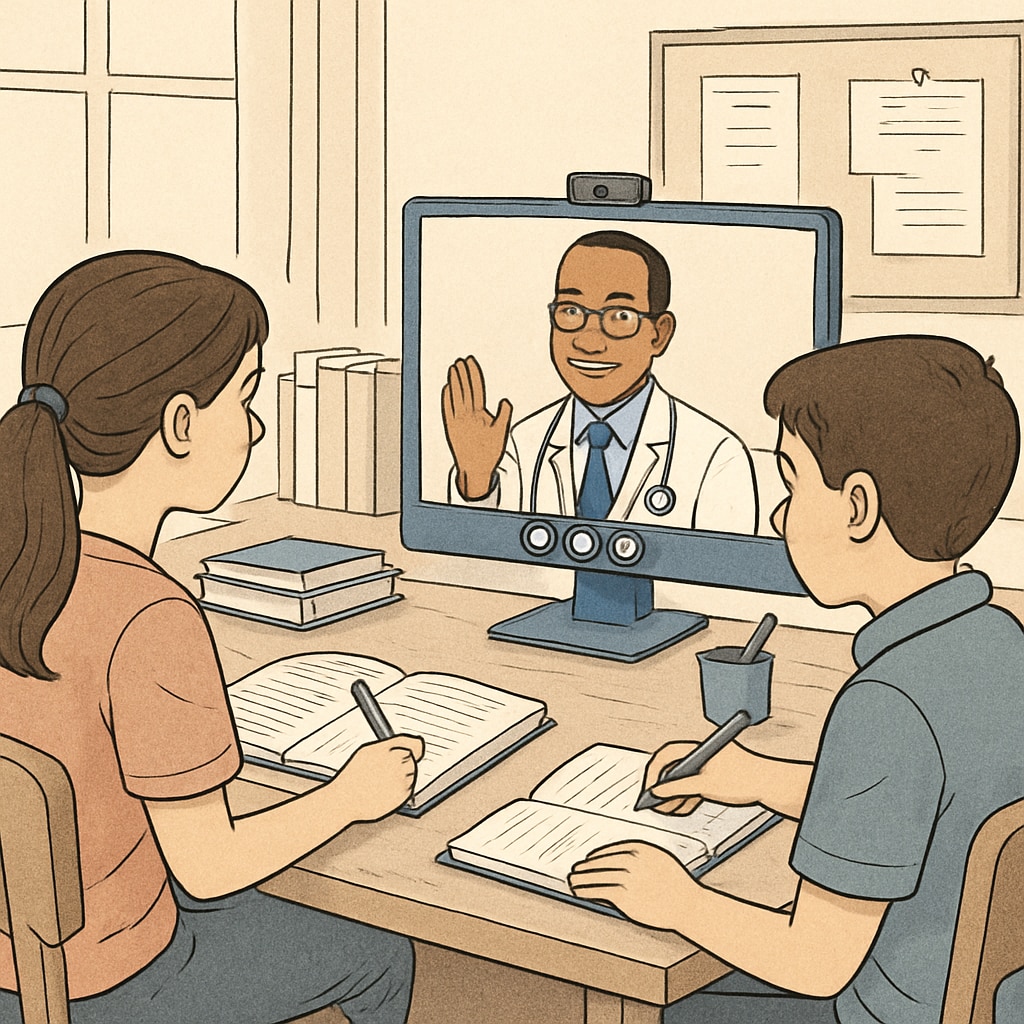Engaging students in understanding medical careers through school projects can greatly enhance their career planning skills and awareness. One effective approach involves structured doctor interview activities, where students interact with healthcare professionals to gain a deeper understanding of their roles, responsibilities, and career paths. This article explores the importance of such projects, provides a framework for their design, and offers tips for successful implementation in the K12 education setting.
Why Medical Career Projects Are Essential in K12 Education
Introducing students to medical careers at an early age helps them build a foundation for informed career choices. Healthcare professions, including doctors, nurses, and specialists, are vital to society; understanding their work can inspire students and spark interest in pursuing these paths. Additionally, these projects nurture valuable soft skills, such as communication, critical thinking, and empathy, by encouraging direct engagement with professionals.
- Informed Career Choices: Students learn about diverse roles in healthcare, enabling them to make well-rounded decisions.
- Skill Development: Interaction with professionals enhances students’ interpersonal skills and confidence.
- Real-World Exposure: By hearing real-life experiences, students gain insights that traditional classroom teaching may not offer.

Designing an Effective Doctor Interview Project
Planning a doctor interview activity requires careful consideration to ensure meaningful engagement and productive outcomes. Below is a step-by-step framework for designing a successful project:
- Define Objectives: Clearly outline the goals of the project. For example, is the focus on career exploration, soft skill development, or both?
- Select Participants: Identify local healthcare professionals willing to participate. This can include general practitioners, surgeons, or specialists.
- Prepare Students: Equip students with background knowledge about medical careers. Teach them how to prepare thoughtful questions for the interviews.
- Facilitate Interaction: Organize face-to-face sessions, virtual meetings, or panel discussions. Ensure students have adequate time to engage with the doctors.
- Reflect and Evaluate: Encourage students to reflect on their learning and share feedback. Use assessments to measure the project’s impact.

Tips for Successful Student-Doctor Interactions
Effective communication is key to the success of medical career projects. Here are some tips to ensure positive and productive interactions:
- Encourage Open Dialogue: Teach students to ask open-ended questions that prompt detailed responses.
- Provide Context: Help doctors understand the students’ level of knowledge and expectations to tailor their answers appropriately.
- Foster Respectful Engagement: Highlight the importance of maintaining professionalism and respect throughout the interaction.
For example, questions such as “What motivated you to choose this field?” or “Can you describe a typical day in your role?” can provide valuable insights while encouraging meaningful conversations.
Conclusion: Inspiring Future Medical Professionals
Incorporating medical career interview projects into K12 education can significantly impact students’ understanding of the healthcare industry and their own potential career paths. By offering structured frameworks and fostering meaningful interactions, schools can help students develop essential skills and gain inspiration to explore rewarding professions in the medical field.
As a result, these projects serve not only as educational tools but also as bridges connecting students to real-world experiences, empowering them to envision their future with confidence.
Readability guidance: Use concise paragraphs and lists to summarize key points. Incorporate transition words like “however,” “in addition,” and “for example” to improve flow. Maintain active voice wherever possible and limit passive constructions.


